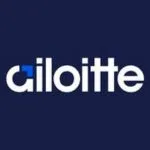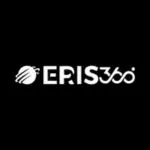
Top Fog Computing Companies
Fog computing, also known as edge computing, is transforming the way businesses manage and process data. As the demand for real-time analytics and IoT solutions grows, selecting the right fog computing partner becomes crucial. Our carefully curated list of top fog computing companies is designed to help you navigate this emerging field with ease. Each company featured has been evaluated based on key factors such as expertise, innovation, and customer reviews, ensuring you find the most reliable and effective solutions for your needs. Whether you’re looking to enhance your IoT infrastructure, improve data processing speed, or gain a competitive edge with real-time insights, our list offers the best options in the industry. Explore the top-rated fog computing companies and make an informed decision for your business.
List of the Best Fog Computing Companies | Top Fog Computing Agencies

-
Employees: 11 to 50
-
Min. Project amount: $10,000
-
Country: NY, USA
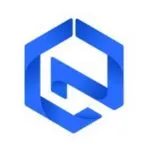
Cyber Nest
-
Employees: 11 to 50
-
Min. Project amount: $25-$49/hr
-
Country: NY, United States
-
Employees: 101 to 250
-
Min. Project amount: $10000
-
Country: Karnataka, India
-
Employees: 11 to 50
-
Min. Project amount: $1,000+
-
Country: Singapore
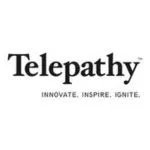
Telepathy Infotech
-
Employees: 51 to 100
-
Min. Project amount: $5,000+
-
Country: Casper, WY

Onex Software
-
Employees: 11 to 50
-
Min. Project amount: $10,000+
-
Country: İzmir, Türkiye
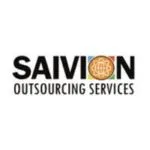
Saivion India
-
Employees: 11 to 50
-
Min. Project amount: $1,000+
-
Country: New Delhi, INDIA

SAT Microsystems
-
Employees: 251 to 500
-
Min. Project amount: $250,000+
-
Country: Jeddah, Saudi Arabia

Elite M Commerce
-
Employees: 101-250
-
Min. Project amount: Undisclosed
-
Country: NJ, United States
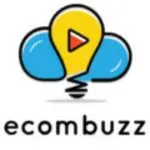
Ecom Buzz
-
Employees: 0 to 10
-
Min. Project amount: $1,000+
-
Country: Kolkata, India
** Buyer's Guide **
- 1. What are some features of a reputable Fog Computing Company?
- 2. What technologies are commonly used in Fog Computing Companies?
- 3. What are the latest trends in Fog Computing Companies that I should be aware of?
- 4. What are common challenges in Fog Computing Companies and how can they be addressed?
1.What are some features of a reputable Fog Computing Company?
A reputable fog computing company typically exhibits several key features that ensure high-quality service and reliability.
Expertise and Experience: A strong background in edge computing, IoT, and related technologies is essential. The company should have a proven track record of successful deployments across various industries, demonstrating its ability to handle complex, real-time data processing at the edge.
Scalability: The ability to scale solutions according to the needs of the client is a critical feature. A reputable company offers flexible architectures that can grow with the business, accommodating increased data loads and expanding networks without compromising performance.
Security and Compliance: Given the sensitivity of data processed at the edge, robust security protocols are non-negotiable. The company should implement advanced encryption, authentication, and access control measures. Additionally, adherence to industry standards and regulations, such as GDPR or HIPAA, reflects a commitment to protecting client data.
Low Latency and High Performance: Fog computing is valued for its ability to reduce latency by processing data closer to the source. A top company ensures minimal delay and high-speed data processing, which is crucial for applications requiring real-time analytics.
Customer Support and Service: Ongoing support is essential for maintaining system performance. A reputable company provides comprehensive customer service, including technical support, troubleshooting, and regular updates, to ensure continuous, smooth operations.
Positive Reviews and Client Feedback: Reviews and testimonials from previous clients offer insights into the company’s reliability, customer satisfaction, and overall service quality. Positive feedback is a strong indicator of a reputable fog computing provider.
2.What technologies are commonly used in Fog Computing Companies?
Fog computing companies leverage a range of technologies to enable efficient data processing at the network’s edge. These technologies are critical in supporting the low latency, scalability, and real-time analytics that define fog computing. Here are some commonly used technologies:
Edge Devices and Sensors: These are the primary data sources in a fog computing environment. IoT devices, sensors, and gateways collect data and perform initial processing before sending it to fog nodes or the cloud. The diversity of these devices, from cameras to temperature sensors, forms the backbone of fog computing.
Microservices Architecture: Microservices allow for the development of modular applications that can be deployed and managed independently across various edge nodes. This architecture supports scalability and flexibility, enabling fog computing systems to adapt to different workloads and environments.
Virtualization and Containerization: Technologies like Docker and Kubernetes are commonly used for deploying and managing applications in fog computing. Virtualization enables multiple applications to run on a single physical device, while containerization allows for lightweight, portable, and efficient deployment of applications across distributed nodes.
Distributed Databases: To manage data across numerous nodes, fog computing companies often use distributed databases like Cassandra or Apache Kafka. These databases ensure that data is stored and accessible locally at the edge while maintaining consistency and availability across the network.
Machine Learning and AI: These technologies are increasingly integrated into fog computing for real-time analytics and decision-making at the edge. AI and ML models can be deployed on fog nodes to process data locally, reducing the need to send large volumes of data to the cloud for analysis.
Network Protocols: Fog computing relies on robust network protocols, such as MQTT and CoAP, to facilitate efficient communication between devices and edge nodes. These protocols are designed for low-bandwidth, high-latency networks, making them ideal for IoT environments.
Together, these technologies form the foundation of fog computing, enabling companies to deliver high-performance, scalable, and secure solutions.
3.What are the latest trends in Fog Computing Companies that I should be aware of?
Fog computing is evolving rapidly, with several trends shaping the industry. These trends reflect the growing importance of edge computing in various sectors and the continuous innovation within fog computing companies.
AI and Machine Learning Integration: Fog computing is increasingly leveraging AI and machine learning for real-time data processing at the edge. Companies are developing AI-driven fog nodes that can analyze data locally, enabling faster decision-making and reducing the need for cloud-based processing. This trend is especially prevalent in industries like autonomous vehicles, smart cities, and industrial IoT.
Enhanced Security Solutions: As fog computing involves processing sensitive data closer to the source, there is a heightened focus on security. Companies are integrating advanced encryption, secure boot mechanisms, and blockchain technology to ensure data integrity and protect against cyber threats. This trend is crucial as the number of connected devices and potential attack vectors grows.
5G and Edge Computing Synergy: The rollout of 5G networks is a significant driver of fog computing adoption. Fog computing companies are increasingly optimizing their solutions to work seamlessly with 5G, enabling ultra-low latency and high-speed data processing. This trend is transforming applications in fields like augmented reality, telemedicine, and autonomous systems.
Decentralized and Peer-to-Peer Architectures: To enhance resilience and reduce dependency on centralized cloud servers, fog computing companies are exploring decentralized and peer-to-peer architectures. This approach allows for more distributed data processing, improving system robustness and reducing single points of failure.
Green Computing Initiatives: Sustainability is becoming a priority, with companies developing energy-efficient fog nodes and leveraging renewable energy sources. This trend aligns with the broader push towards green computing and reducing the environmental impact of data centers and edge devices.
Staying aware of these trends can help businesses leverage the latest innovations in fog computing for enhanced performance and security.
4.What are common challenges in Fog Computing Companies and how can they be addressed?
Fog computing companies face several challenges, primarily due to the complexity of managing distributed systems that operate at the network’s edge. Addressing these challenges is essential for delivering reliable and efficient solutions.
Security and Privacy Concerns: Processing data at the edge exposes it to potential security threats, including cyberattacks and data breaches. To address this, companies must implement robust security measures such as end-to-end encryption, secure boot processes, and regular software updates. Additionally, using blockchain for secure transactions and decentralized identity management can help protect data privacy.
Scalability Issues: Managing a large number of distributed devices and nodes can be difficult, especially as networks grow. Companies can address this challenge by adopting scalable architectures, such as microservices and containerization, which allow for flexible deployment and management of applications across multiple nodes. Automated orchestration tools like Kubernetes can also help manage and scale fog computing environments effectively.
Interoperability: With diverse devices and platforms involved in fog computing, ensuring interoperability is a significant challenge. Companies should focus on adopting and promoting industry standards and protocols, such as MQTT, CoAP, and OPC UA, to ensure seamless communication between different devices and systems.
Latency and Network Reliability: While fog computing reduces latency compared to cloud computing, maintaining low latency and network reliability across distributed nodes can still be challenging. To address this, companies can optimize data routing and processing algorithms, deploy redundant nodes, and use edge caching to improve performance and reliability.
Resource Constraints: Edge devices often have limited computational power, storage, and energy resources. Companies can mitigate this by designing lightweight applications, optimizing resource usage, and employing energy-efficient hardware to maximize performance without overburdening the devices.
By tackling these challenges with innovative solutions and best practices, fog computing companies can enhance the effectiveness and reliability of their services.

